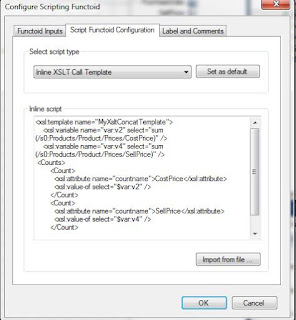Hi All,
While installing HL7 or while starting HL7 Logging Service this error may occur
When you check your event viewer you will find error saying
Service cannot be started. System.Runtime.Remoting.RemotingException: .Config file '%Drive%:\XXXX\XXXX\Bin\AuditingLoggingService.config' cannot be read successfully due to exception 'System.IO.FileNotFoundException: The system cannot find the file specified.
it will look like below
Cause: The error is quite self explanatory. it is not able to find AuditingLoggingService.config file.
Solution: Check if the file exists or not in your system. If exists but at different location then copy the file and paste at specified location.
If not exists :
Open notepad or notepad++
Just copy below text :
<configuration><system.runtime.remoting><application name="alserver"><service><wellknown mode="Singleton" type="Microsoft.Solutions.BTAHL7.AuditingLogging.EventBroker, Microsoft.Solutions.BTAHL7.AuditingLogging" objectUri="EventBroker" /></service><channels><channel ref="tcp" port="4000" rejectRemoteRequests="true"><serverProviders><provider ref="wsdl" /><formatter ref="binary" typeFilterLevel="Full" /></serverProviders></channel></channels></application></system.runtime.remoting><appSettings><add key="ConfigDb" value="Integrated Security=SSPI;database=BTAHL7;server=BTS2010DEV" /></appSettings></configuration>
And save it with name as AuditingLoggingService.config
Now copy this file and paste at the specified location and continue with the Insatallation.
Thanks Anshu Kumar










